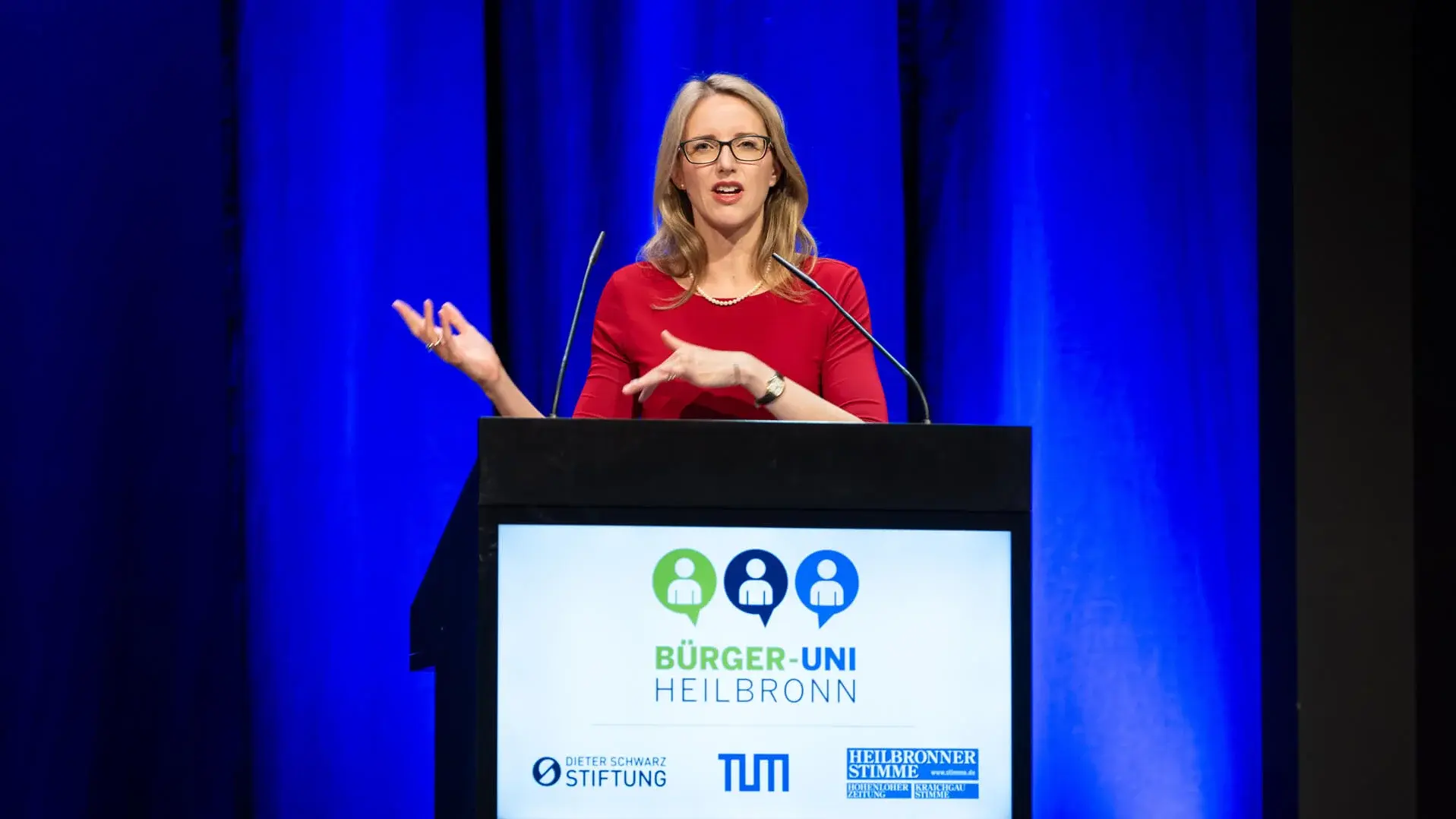Buyx explained that AI cannot develop consciousness, surpass human intelligence, or act morally responsible: "They will remain machines. Our intelligence is much more than data processing." Additionally, the use of AI should enhance human development and not replace humans.
Using four areas of application—medicine, education, administration, and public discourse—Buyx highlighted both the opportunities and risks of AI. In medicine, AI can make significant progress in drug development or diagnosis: "It used to take years... Now it takes six hours." However, she warned against blind trust and emphasized the need for fair datasets.
In education, Buyx spoke about intelligent tutoring systems that can personalize learning for children and criticized invasive surveillance in Asian classrooms. In the field of administration, she sees much potential for AI applications that could support vital decision-making.
Buyx called for transparency and mandatory labeling of AI but rejected outright bans: "The technology itself is neither good nor bad." She stressed the importance of global minimum standards and human responsibility in using this technology ethically: "The final responsibility must lie with humans."
The next “Bürger Uni” is on 7 November. The evening's expert, Prof Ortwin Renn, will talk about "The psychology of risk: how people deal with uncertainty".
